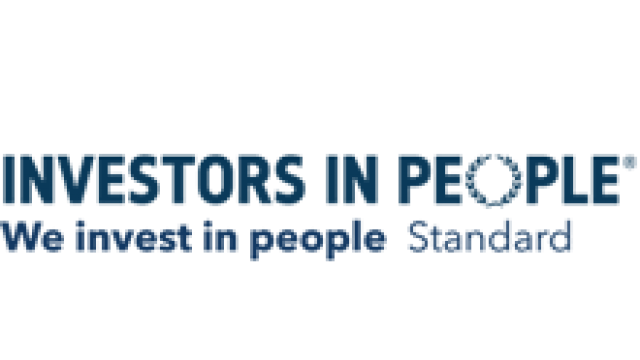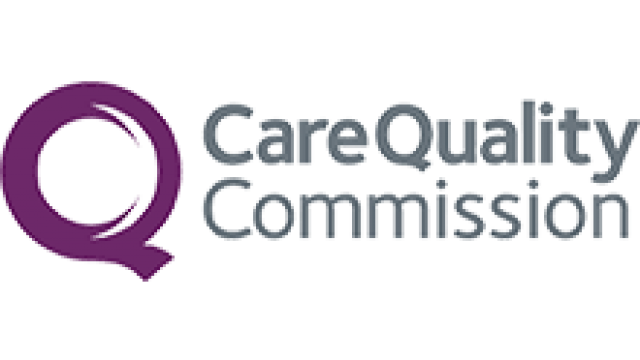1. INTRODUCTION:
The current novel coronavirus (COVID-19) outbreak, which began in December 2019, presents a significant challenge for the entire world. The UK government and the devolved administrations, including the health and social care systems, have planned extensively over the years for an event like this, and the UK is therefore well prepared to respond in a way that offers substantial protection to the public.
Of course, this is a new virus, and new technology and the increasing connectivity of our world mean that our plans need to be kept up to date, to reflect that illnesses – and news and information about them – travel much more quickly today than even 10 years ago.
Recognising the respective roles and responsibilities of the UK government and devolved administrations, this document sets out what the UK as a whole has already done and plans to do further to tackle the current coronavirus outbreak, based on our wealth of experience dealing with other infectious diseases and our influenza pandemic preparedness work.
The exact response to COVID-19 will be tailored to the nature, scale and location of the threat in the UK, as our understanding of this develops.
This document sets out:
· what we know about the virus and the disease it causes
· how we have planned for an infectious disease outbreak, such as the current coronavirus outbreak
· the actions we have taken so far in response to the current coronavirus outbreak
· what we are planning to do next, depending upon the course the current coronavirus outbreak takes
· the role the public can play in supporting this response, now and in the future
2. WHAT WE KNOW ABOUT THE VIRUS AND THE DISEASES IT CAUSES
Coronaviruses are a family of viruses common across the world in animals and humans. Certain types cause illnesses in people. For example, some coronaviruses cause the common cold; others cause diseases which are much more severe such as Middle East Respiratory Syndrome (MERS) and Severe Acute Respiratory Syndrome (SARS), both of which often lead to pneumonia.
COVID-19 is the illness seen in people infected with a new strain of coronavirus not previously seen in humans.
On 31 December 2019, Chinese authorities notified the World Health Organization (WHO) of an outbreak of pneumonia in Wuhan City, which was later classified as a new disease: COVID-19.
On 30 January 2020, WHO declared the outbreak of COVID-19 a “Public Health Emergency of International Concern” (PHEIC).
Based on current evidence, the main symptoms of COVID-19 are a cough, a high temperature and, in severe cases, shortness of breath.
As it is a new virus, the lack of immunity in the population (and the absence as yet of an effective vaccine) means that COVID-19 has the potential to spread extensively. The current data seem to show that we are all susceptible to catching this disease, and thus it is also more likely than not that the UK will be significantly affected.
Among those who become infected, some will exhibit no symptoms. Early data suggest that of those who develop an illness, the great majority will have a mild-to-moderate, but self-limiting illness – similar to seasonal flu.
It is, however, also clear that a minority of people who get COVID-19 will develop complications severe enough to require hospital care, most often pneumonia. In a small proportion of these, the illness may be severe enough to lead to death.
So far, the data we have suggest that the risk of severe disease and death increases among elderly people and in people with underlying health risk conditions (in the same way as for seasonal flu).
Illness is less common and usually less severe in younger adults. Children can be infected and can have a severe illness 10, but based on current data overall illness seems rarer in people under 20 years of age.
So far, there has been no obvious sign that pregnant women are more likely to be seriously affected.
Given that the data are still emerging, we are uncertain of the impact of an outbreak on business. In a stretching scenario, it is possible that up to one-fifth of employees may be absent from work during peak weeks. This may vary for individual businesses.
We do not yet have entirely complete data on this disease. But as we learn more about the virus, its effects and its behaviour (for example, the timing and extent of the peak of an outbreak, its precise impact on individuals), we will be able to revise estimates of its potential spread, severity and impact. We will then review, and (where necessary) adapt this plan accordingly.
Work is in hand to contain the spread of the virus. This includes extensive guidance provided to individuals returning from areas where there are cases being reported, and encouraging self-isolation as the primary means to contain the spread of the disease. Given that there is currently neither a vaccine against COVID-19 nor any specific, proven, antiviral medication, most treatment will therefore be towards managing symptoms and providing support to patients with complications.
The majority of people with COVID-19 have recovered without the need for any specific treatment, as is the case for the common cold or seasonal flu. We expect that the vast majority of cases will best be managed at home, again as with seasonal colds and flu.
3. PLANNING PRINCIPLES
In preparing for, and responding to, a serious disease outbreak, the UK government and the devolved administrations aim to:
· undertake dynamic risk assessments of potential health and other impacts, using the best available scientific advice and evidence to inform decision-making
· minimise the potential health impact by slowing spread in the UK and overseas, and reducing infection, illness and death
· minimise the potential impact on society and the UK and global economy, including key public services
· maintain trust and confidence among the organisations and people who provide key public services, and those who use them
· ensure dignified treatment of all affected, including those who die
· be active global players – working with WHO, the Global Health Security Initiative (GHSI), the European Centre for Disease Prevention and Control (ECDC), and neighbouring countries, in supporting international efforts to detect the emergence of a pandemic and early assessment of the virus by sharing scientific information
· ensure that the agencies responsible for tackling the outbreak are properly resourced to do so, that they have the people, equipment and medicines they need, and that any necessary changes to legislation are taken forward as quickly as possible
· be guided by the evidence, and regularly review research and development needs, in collaboration with research partners, to enhance our pandemic preparedness and response
The UK government and the devolved administrations have been planning an initial response based on information available at the time, in a context of uncertainty, that can be scaled up and down in response to new information to ensure a flexible and proportionate response.
The fundamental objectives are to deploy phased actions to Contain, Delay, and Mitigate any outbreak, using Research to inform policy development.
The different phases, types and scale of actions depends upon how the course of the outbreak unfolds over time. We monitor local, national and international data continuously to model what might happen next, over the immediate and longer terms.
The overall phases of our plan to respond to COVID-19 are:
· Contain: detect early cases, follow up close contacts, and prevent the disease taking hold in this country for as long as is reasonably possible
· Delay: slow the spread in this country, if it does take hold, lowering the peak impact and pushing it away from the winter season
· Research: better understand the virus and the actions that will lessen its effect on the UK population; innovate responses including diagnostics, drugs and vaccines; use the evidence to inform the development of the most effective models of care
· Mitigate: provide the best care possible for people who become ill, support hospitals to maintain essential services and ensure ongoing support for people ill in the community to minimise the overall impact of the disease on society, public services and on the economy.
4. BUSINESS CONTINGENCY PLAN FOR CORONAVIRUS (COVID-19) AND OUR STRATEGY.
To meet all the identified needs of our service users a care plan is put in place, with the aim of (where possible) developing the service users self-care skills.
It’s important for us to do their risk assessment so that we can prepare and allocate the right care worker for the client which will benefit them on a daily basis, and to keep them safe while they build their self-confidence and physical strength. In the risk assessment, we need to involve the client’s family members and other professionals so that we can create a plan together.
None of our service users has any medical administration or prompting medication all our service users are diagnosed with Autism, Global Developmental Delay, Speech and Language Delay, Communication Difficulties, ADHD, Learning Difficulties some have behavioural difficulties. And their service mainly is for escorting or out-reach services in the communities.
A few of the service users required support for medication, but due to school closures, our escorting and outreach care support will be limited, therefore, service user’s mum will be fully responsible to provide medication in these stages. Rest of the service user’s family members are responsible to provide Medication.
Out of our total number service user, we have few clients who required personal care and for this, we have full capacity to work with all our current client we have allocated carer to continue to work with their regular client however if public transport is cancelled and other restrictions take place, we already made an arrangement with a family member and their NOK to manage the service.
Should any client or next of kin become unwell or develop symptoms of coronavirus (such as; temperature, coughing, or respiration problems), the client must inform the office as soon as possible. Our office phone line is open 24 hours, so if a carer reports to the office staff that their family member has been exposed to COVID-19, then, we will arrange another carer to cover the call. Otherwise, we will have to cancel the service to protect the health and safety of both carers and clients. And this agreement we have between us and our clients and their family member’s again if this happens, they may need to step in and support the service user.
5. ENSURING SUPPORTING CARE’S BUSINESS CONTINUITY
Nubah Social Care is preparing for a significant outbreak of coronavirus leading to greater numbers taking time off sick or self-isolating in accordance with government and HNS guidance.
5.1 IMPORTANT MEASURES:
The current risk level to the UK public of catching Coronavirus (COVID-19) is moderate and to avoid catching or spreading the virus we ask our care worker, field supervisors and office staffs all to continue to follow this advice:
· wash your hands with soap and water often – do this for at least 20 seconds
· always wash your hands when you get home or into work
· use alcohol-based hand sanitiser gel if soap and water are not available
· cover your mouth and nose with a tissue or your sleeve (not your hands) when you cough or sneeze
· put used tissues in the bin straight away and wash your hands afterwards
· try to avoid close contact with people who are unwell
The care service we will continue to operate as normal with the option that we consider that on a temporary basis all our office employees could continue to do their work from home. Those who have laptops or work phones need to start taking these home at the end of each day in case we move to working from home.
Also, our IT manager will get opportunity to worker remotely to use static IP address if any issue to notify and update to then team.
5.2 RISK FACTORS:
There are some factors that have been associated with individuals being more vulnerable to COVID-19. We recognise that research is emerging about COVID-19 and we keep ourselves up to date with the latest information.
When assessing, we consider the following risk factors:
· UNDERLYING HEALTH CONDITIONS:
Asthma, Diabetes mellitus, chronic kidney disease, chronic liver disease, very obese (BMI 40 or above), pregnancy.
· ETHNICITY AND CULTURE:
The evidence shows that a person from a black, Asian or minority Ethnic (BAME) background is far more likely to be diagnosed with COVID-19. The risks of death in this groups are twice that of other groups.
· AGE:
The people who are aged 70 or older are at a higher risk of catching the covid-19.
· SEX:
The latest evidence shows that males diagnosed with COVID-19 are twice at risk and likely to die than females.
· GATHERING INFORMATION:
We ensure that a review date is included and we will update with any new information or any changes.
· INDIVIDUAL MEASURES:
Following the governments advise on COVID-19 risk management, we have established a system for safe working and effective communication. We follow all measures to ensure that exposure to COVID-19 is minimised.
5.3 COVID 19 BUSINESS CONTINGENCY PLAN
Currently it is very unlikely that we will need to close the office. However, we can take the following steps to facilitate working from home if necessary:
· ensuring our team members update their contact details and emergency contact details with their Line Manager
· consider and plan for our team needing to work from home
To be aware that people may need to take time off at short notice to support dependents (for example, due to school closures).
5.4 THERE IS A STATUTORY RIGHT TO TAKE TIME OFF FOR DEPENDENTS. IF THIS APPLIES TO STAFF, THEY NEED TO SPEAK TO HR MANAGER
· Whilst there is no statutory right to be paid for time off for dependants, we will work with all those affected and be flexible depending on their needs
· These are unusual circumstances where employees may not be able to make alternative arrangements so may not be able to continue with all their work. Homecare will operate as normal at the moment and we are following guidance from Adult Social Care teams in the respective borough and will make changes accordingly.
5.5 OUR HEALTH & SAFETY DUTIES AS AN EMPLOYER
Nubah Social Care has a duty to ensure the health & safety and welfare of our employees, so far as is reasonably practicable. Potential exposure to coronavirus is clearly a risk we must take into account. We are taking a risk-based approach in our plan by:
· identifying any employees with particular vulnerabilities (e.g. pregnant workers and those with pre-existing conditions); these people may in the future need special protection. There is currently no guidance to suggest we take any specific action
· identifying any employees who have recently returned from, or who are about to return from, any of the areas listed in the government guidance. These people may need to be kept away from the workplace, at least until they have received advice from NHS 111
· considering and following government and NHS guidance
· being cautious from the start. If coronavirus (COVID-19) is contracted and spread in the workplace, we will instruct anyone with the symptoms associated with the coronavirus not to attend work, to seek advice from NHS 111 and not return to work until the symptoms have cleared.
· asking that employees do not come into the office if they are unwell. If they are displaying any symptoms that are typical of coronavirus or any mild respiratory symptoms like coughing or sneezing, they should not come in to the office.
5.6 WHAT SHOULD WE DO IF AN EMPLOYEE WHO HAS RETURNED FROM A HIGH-RISK AREA COMES INTO WORK?
Government guidance recommends a 14-day quarantine period, which means “remaining at home for 14 days after arriving home and not going to work, school or public areas”. So, to protect others, and to comply with government guidance, we will send the employee home.
5.7 WHAT IF AN EMPLOYEE HAS COME IN TO CONTACT WITH SOMEONE WHO IS DISPLAYING SYMPTOMS OF CORONAVIRUS AND HAS RECENTLY RETURNED FROM AN INFECTED AREA OR SOMEONE WHO HAS NOW BEEN DIAGNOSED WITH CORONAVIRUS?
In relation to an employee who does not have the symptoms associated with coronavirus, but who has been in contact with someone who has, or with an infected person, we would ask that the employee does not come in to work and notifies their Care Manager or HR management by phone or email as soon as possible.
We will ask the employee to work from home if required or return to work only if they do not develop symptoms during an agreed period.
5.8 WHAT IF SOMEONE DOES NOT WANT TO COME INTO THE OFFICE?
If someone refuses to come into the office but is not ill or self-isolating based on government guidance, we will: –
· need to ensure we know all the facts
· find out if they are pregnant, or particularly vulnerable
· refer them to the government guidance
· If there is an issue, speak to HR experts and take advice
· listen to their concerns and, where possible, make arrangements for home working
5.9 WHAT IF YOU ARE ILL WITH CORONAVIRUS?
· Staff should let their Line Manager know as soon as possible if they are not able to come to work. They SHOULD NOT come into the office.
· Senior Management will continue to keep in touch with staff that are off sick by email and phone.
· Follow the advice of Public Health England and the NHS before planning a return to work
5.10 WHAT IF YOU CANNOT SUBMIT YOUR TIMESHEETS TO THE OFFICE?
If a care worker can’t come to the office in these circumstances, they need to send their timesheets to our timesheets email: TS@nscare.co.uk
5.11 WHAT ABOUT PPE LOGISTICS?
Currently, we have sufficient PPE logistics in our stock. However, we are working rapidly with wholesalers to ensure a longer-term supply of all aspects of personal protective equipment, including gloves, aprons, facemasks and hand sanitiser. This will mean sufficient PPE provisions in the future for all care workers.
5.12 WHAT IF YOU FEEL UNWELL IN THE OFFICE?
If, while at work, you become unwell with any symptoms that are typical of coronavirus, or any mild respiratory symptoms like coughing or sneezing, you should:
· get at least 2 meters (7 feet) away from other people – go to a room or area behind a closed door, such as a meeting room
· avoid touching anything
· cough or sneeze into a tissue and put it in a bin, or cough and sneeze into the crook of your elbow
· use a separate bathroom from others
· use your own mobile phone to call the NHS 111, or if you feel seriously ill, call 999
Management should discuss the case; identify people who have been in contact with the affected person; carry out a risk assessment; give advice on any actions or precautions to take.
If someone with coronavirus comes to work, the workplace does not necessarily have to close. We will contact the local PHE health protection team to update us.
6. FURTHER MEASURES BEING TAKEN TO MINIMISE RISKS:
* we have access to testing kits which will allow us to identify carers with coronavirus at an early stage, as soon as they start showing any symptoms.
*the latest government update indicates that a vaccine for coronavirus will be on the market soon. As soon as these are available, we will make sure that staff have access to them as soon as possible.
7. BUSINESS CONTINUITY PLANREVIEW:
This Business Continuity Planning and of COVID-19 will be subject to review.





